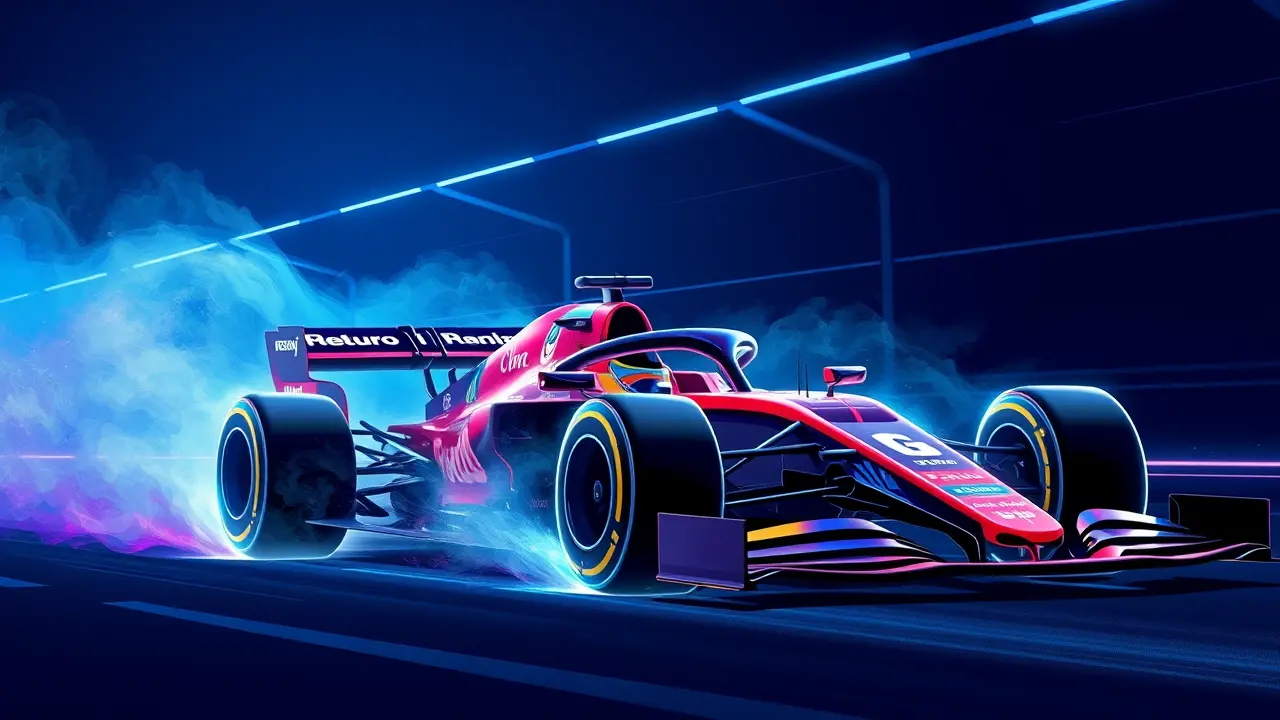Dan Ticktum: F1 drivers have no life, Formula E is better.
In a refreshingly candid assessment that cuts to the very heart of modern motorsport's divergent paths, Formula E driver Dan Ticktum, a former Williams F1 test driver, has launched a compelling critique of the pinnacle of racing, positioning his current electric series not merely as an alternative, but as a superior lifestyle and competitive proposition. The British driver, never one to mince words, pulled no punches in his comparison, stating bluntly, 'You have no life if you're an F1 driver, no youth.' This isn't just a throwaway comment from a disgruntled former aspirant; it's a calculated indictment of the Formula 1 grind, a globe-trotting circus that consumes its participants with a relentless schedule of 23-plus races, leaving little room for personal growth or simple existence outside the paddock bubble. Ticktum contrasts this with the more humane calendar of Formula E, where 'there are big gaps between stages, you can do other things,' highlighting a fundamental shift in philosophy.He champions Formula E as a 'new and exciting series,' a frontier where the racing is pure and the narrative isn't entirely scripted by corporate overlords. Delving deeper into the psychological constraints of F1, Ticktum pointed to a lack of space for drivers with strong personalities, a consequence of the immense pressure on brands to manage their messaging and appeal to a global audience.'I don't think it's right to live like that, and I stopped enjoying it,' he confessed, landing on the profound conclusion that 'happiness is more important than anything. ' This prioritization of mental well-being over prestige and paycheck is a powerful message in an era where athlete mental health is finally receiving its due attention, echoing the journeys of athletes in other sports who have stepped away from the brightest lights for the sake of their sanity.But Ticktum's advocacy for Formula E isn't based on leisure alone; he passionately detailed the unique and immense technical challenges that make it a different kind of beast. 'There is almost no room for error,' he asserted, describing the high-wire act of qualifying where a single mistake is catastrophic.He likened the races themselves to 'chess matches,' a far cry from the flat-out sprints of F1, requiring drivers to juggle a complex web of strategic considerations, from sophisticated energy management software to the delicate thermal management of all-weather Hankook tires. This demands not just raw speed, but immense psychological fortitude, a cerebral toughness that separates the best in the field.To understand the weight of Ticktum's words, one must look at his own career trajectory—a prodigy once compared to Max Verstappen, his path through the junior formulae was meteoric yet tumultuous, marked by incidents that perhaps revealed a character too vibrant for the sanitized world of top-tier F1. His journey from Red Bull junior to Williams reserve, and now to a team leader in Formula E, is a case study in adaptation and finding one's authentic competitive home.It brings to mind other drivers who found greater success and satisfaction outside the F1 pressure cooker, like three-time IndyCar champion Scott Dixon or Formula E stalwart Lucas di Grassi, who have built legendary careers on their own terms. Ticktum's comments also arrive at a pivotal moment for both championships.Formula 1, under Liberty Media, has exploded in global popularity, particularly in the United States, becoming a lifestyle brand as much as a sport, but this very success may be amplifying the corporate pressures Ticktum laments. Meanwhile, Formula E is solidifying its identity as the premier platform for electric innovation and sustainable motorsport, attracting major manufacturers and a growing, tech-savvy fanbase.The recent public exchange where George Russell compared Max Verstappen's driving style to that of 'a certain British Formula E driver'—a clear nod to Ticktum—and Ticktum's witty retort thanking him for the 'free publicity,' underscores this growing cultural relevance. It’s a rivalry not just on track, but of philosophies. Is the future of racing the glitzy, globalized, and grueling marathon of F1, or the strategic, sustainable, and sanity-preserving championship of Formula E? Dan Ticktum has placed his bet, and in doing so, has articulated a compelling vision for what a balanced, fulfilling, and ferociously competitive driving career can look like in the 21st century.
It’s quiet here...Start the conversation by leaving the first comment.
© 2025 Outpoll Service LTD. All rights reserved.
